A large majority of people on the internet are using search engines like Google, Bing, Yahoo, and more. Search engines are used to find answers to questions, restaurants, products, and businesses.
If you want your website to appear on some of these searches, you’ll need to use SEO techniques like SEO Keywords to become noticeable.
By now, you’ve probably heard other people use the term “keywords” in regards to website marketing. But what are keywords? And how to they help your website rank higher on Google and other search engines?
What Are Keywords?
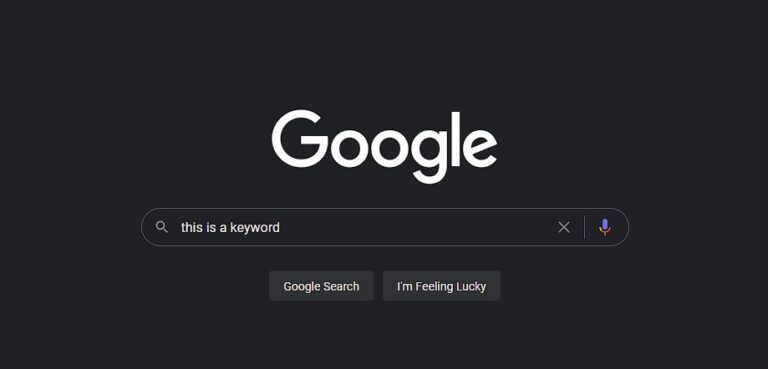
A keyword is the umbrella term used to describe words or phrases people type into search engines. Keywords don’t have to be just one word, they can be long phrases as well. Basically, anything someone types into Google (or any other search engine) is considered a keyword.
Why Are Keywords Important?

Search engines are there to answer questions. Keywords help search engines like Google show the appropriate pages in order to answer the question (or search) typed in by the internet user. Without using keywords, search engines wouldn’t know which websites to show for any given search.
One of the main goals of SEO is to have a website show for the most relevant searches. For example, if you own a roofing company, you want your website to show for keywords like “roof replacement” or “roof repair.” Using keywords like those on your site will help search engines know to show your website when users search these terms.
Types of SEO Keywords
There are three types of SEO keywords. Short-trail, mid-tail, and long-tail keywords.
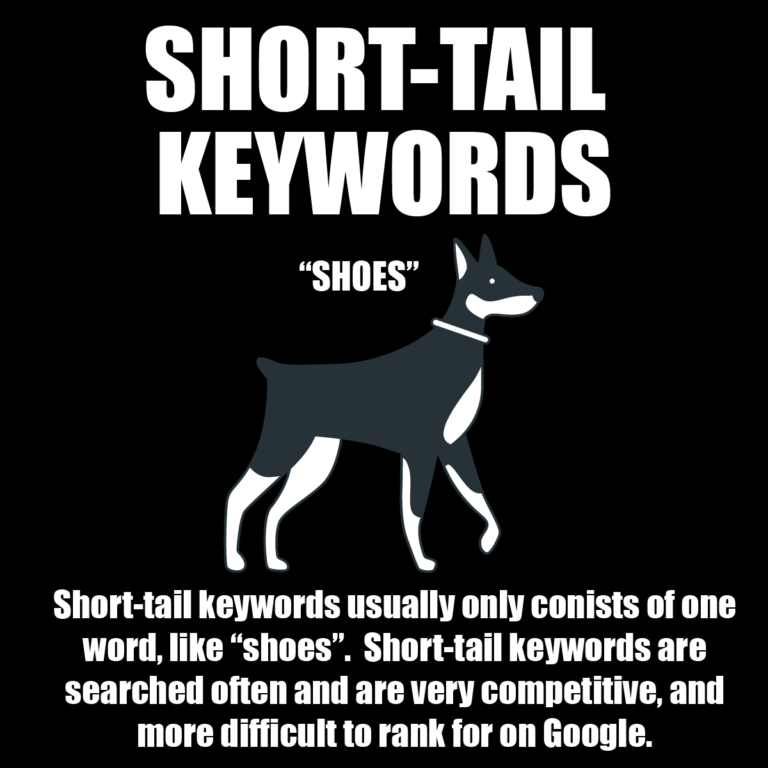
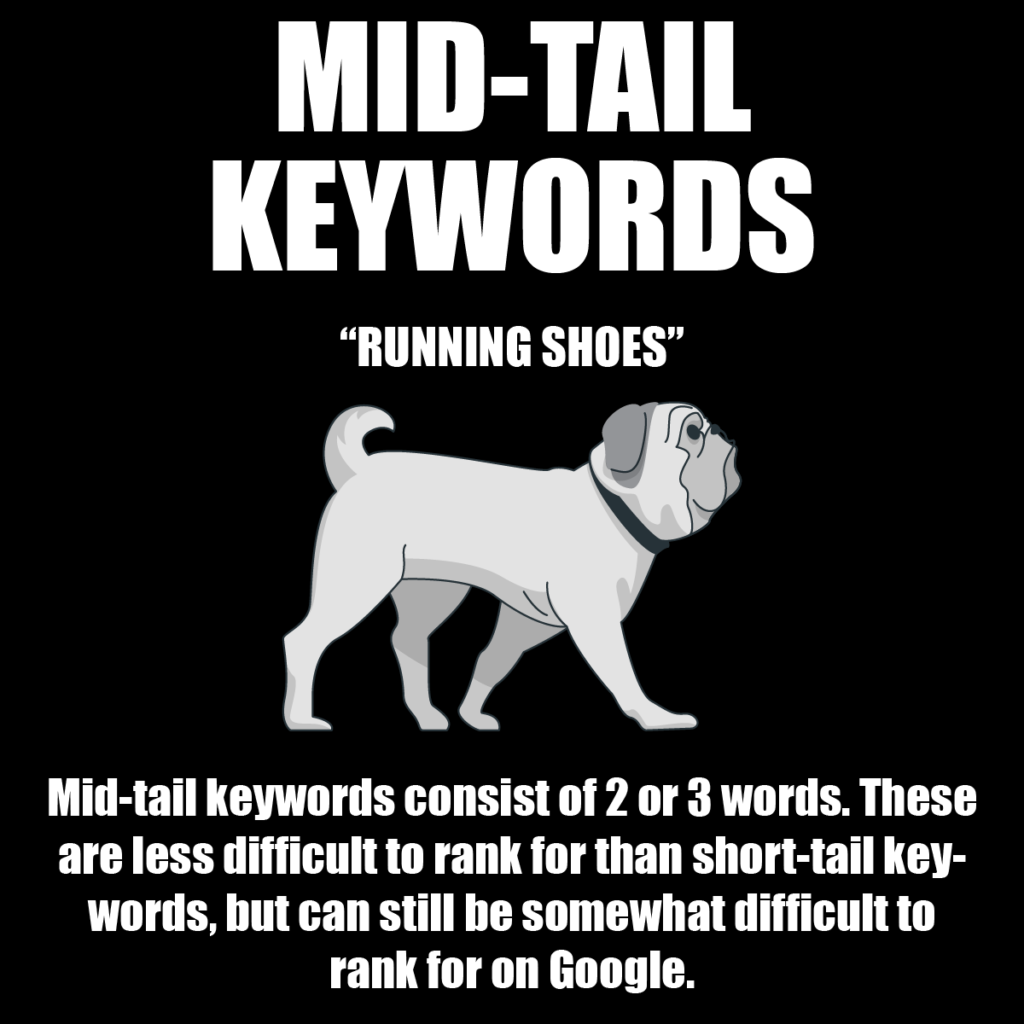
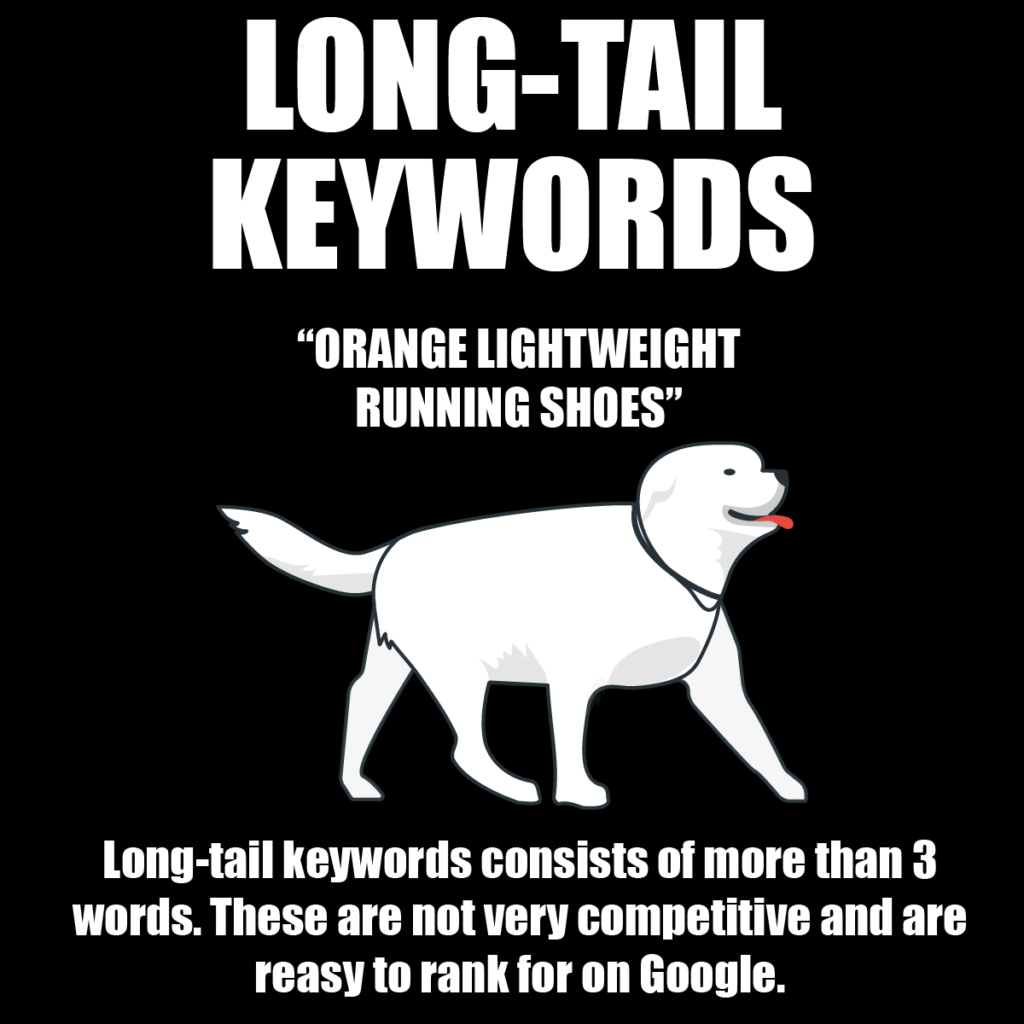
Short-Tail Keywords
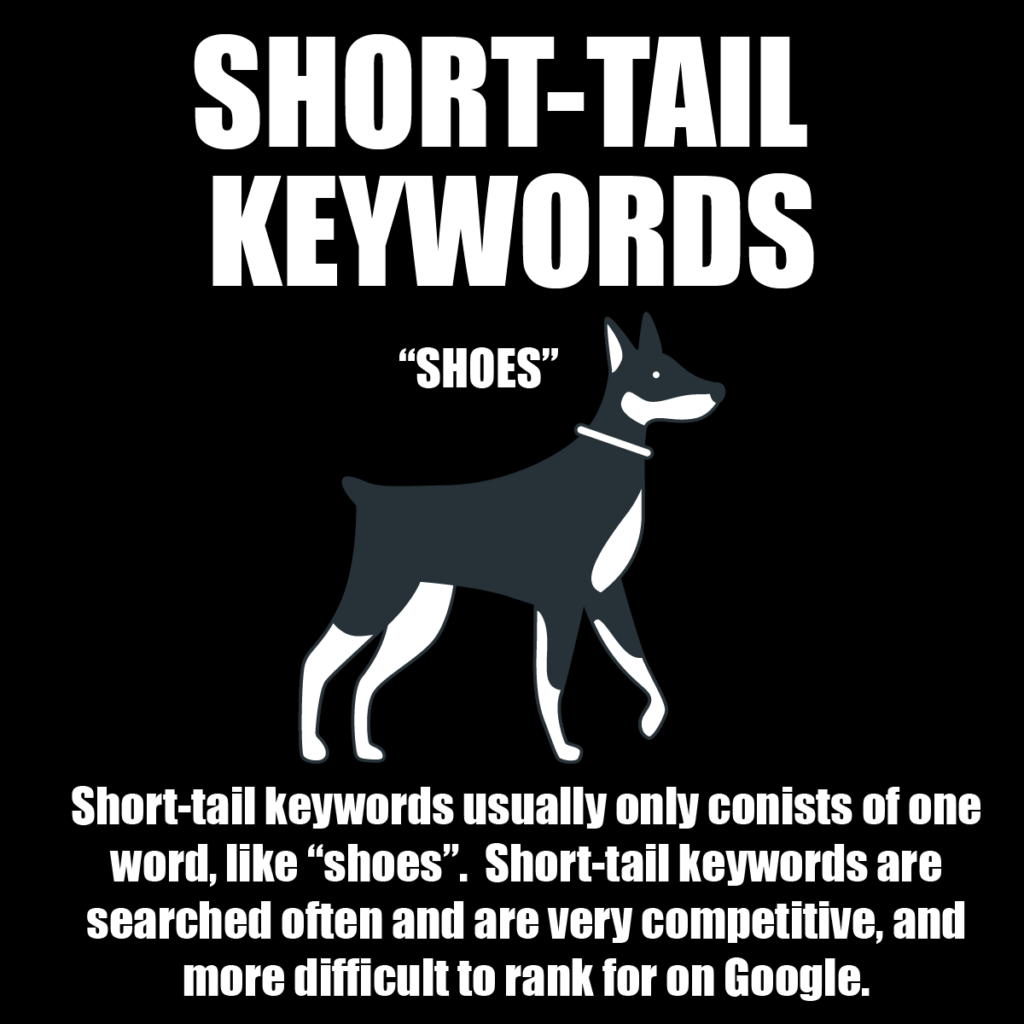
Short-tail keywords contain just one word. For example, “shoes” is a short-tail keyword.
Short-tail keywords have a very high search volume. This means they get A LOT of searches and a lot of traffic. Short-tail keywords are very popular and used by many people on the internet each month.
Thanks to the high search volume of short-tail keywords, they can be extremely competitive and difficult to rank for on search engines like Google. If your goal is to rank for a keyword like “shoes”, you probably won’t be able to achieve that. This is why short-tail keywords are not the best choice in terms of SEO for your website.
Mid-Tail Keywords

Mid-tail keywords are search terms that consist of two or three words. These terms have somewhat lower search volumes and are slightly easier to rank for.
“Running Shoes” is a good example of a mid-tail keyword.
While mid-tail keywords are easier to rank than short-tail keywords, they are still not the most ideal choices for keywords to implement in your own website. Most mid-tail keywords are still too difficult and competitive for small businesses to rank for them.
Long-Tail Keywords

Long-tail SEO keywords are terms that have more than three words, like “orange lightweight running shoes.”
These types of keywords are the best to implement for small business websites. Their search volumes are much lower than short-tail and mid-tail keywords and are much less competitive. Long-tail keywords are also much more specific. Therefore, anyone using a long-tail keyword you rank for is most likely the exact type of customer you are looking for.
Here’s an example:
Your business only sells orange lightweight running shoes. If you were to rank for “shoes” or even “running shoes”, a lot of these users won’t buy your product, since they might not be looking for orange lightweight running shoes. Now, if someone were to search “orange lightweight running shoes” they would be much more likely to buy your product because you are selling exactly what they’re searching for.
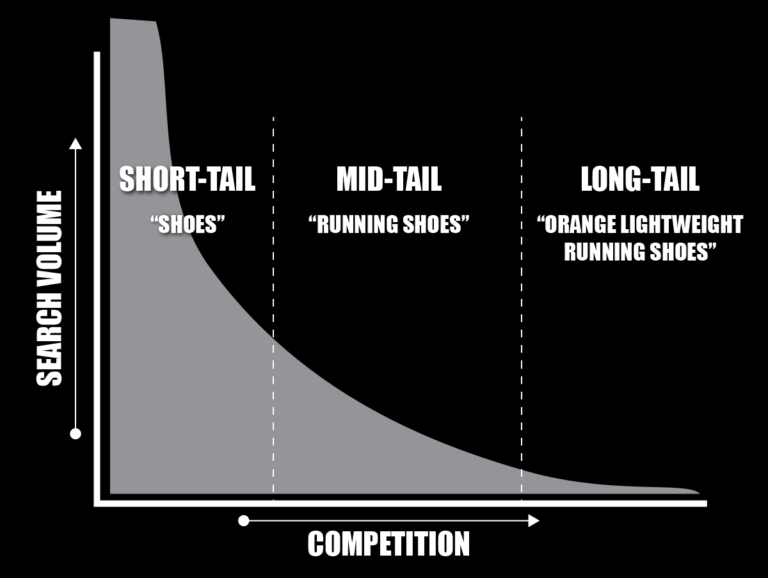
SEO Keyword Research

When thinking about keywords to implement on your website for SEO, you’ll need to take some time to do some keyword research. While you might have some ideas for keywords you want your website to rank for, they might not be the best choice. Keyword research is a critical first step towards proper website SEO.
Keyword research lets you look into the statistics for specific keywords to see how competitive they are, their search volumes, and their rise, and fall in popularity. The Google Keyword Planner is a great tool to gather all of this information. This free tool will not only show you these statistics, but will also give you ideas for similar keywords that might be better.
How To Use SEO Keywords on Your Website

SEO Keywords in URLs
This may seem like an obvious one, but it tends to be forgotten about frequently. You should implement SEO keywords and descriptive words into your URL. This will also help Google and other search engines know when to rank your site for relevant searches. For example, the URL for this blog post is:
https://bigshotmad.com/2022/07/4-things-you-can-do-right-now-to-improve-your-websites-seo/
The URL for this post makes it very clear what the content is going to be about, so search engines can better understand your content. If you have pages with URLs like bigshotmad.com/1298650, you’re losing out on a big SEO opportunity. So, go through the pages of your website, and look in the URL bar. If you see some of your pages have confusing URLs, update them to include relevant keywords.
SEO Keywords in Headings
See the larger text above the image? That’s a Heading. Headings, which can be ranked from an H1 (usually saved for the name of the page) to H6 (used for smaller subsections), are used to categorize and organize the content on the page. For example, the H1 heading for this page is “4 Things You Can Do Right Now To Improve Your Website’s SEO”, and the H2 heading for this section is called “Put SEO Keywords In Your Headings.” This information tells search engines what the content on this page is about, so they know when/where to rank it in search results.
HEADINGS SHOULD NOT BE USED JUST TO INCREASE TEXT SIZE
The warning above is actually a heading, which is ironic, but it’s still very important. Many web designers, even professionals, will use headings just because they make the text larger. This is a big mistake. Headings need to be used as information indicators for your content, not just to make text larger.
Putting relevant keywords in your headings is a great way to show search engines what your content is about, and help you rank on searches that are relevant to your website.
For example, if you own a roofing company, use a header like “Best Residential Roofing, Orlando, FL.” This heading will tell Google and other search engines that your website is about a residential roofing company based in Orlando, FL. This will help you rank for searches like “roofing near me” when people are searching in the Orlando area.
SEO Keywords in Images
One of the most popular SEO techniques is naming your images before they are uploaded to your website. If you right-click the image above and read its name, it will say “Rename Images for Better SEO.” This file name describes the image to search engines like Google so they understand what is happening in the image, and when to show it in search results.
Many images on websites have file names like IMG_1604 or DSC0089. These are the titles the camera gives to the file when the photo is taken. Unfortunately, these files do absolutely nothing for your website’s SEO. Including relevant keywords and other descriptive words in your file name BEFORE you upload the image to your site, will greatly improve your website’s SEO.
So, how do you fix the images that are already on your site? We suggest renaming all the images on your computer and reuploading them to your website. If you don’t currently have the images on your computer, you can download them from your website, then rename them, and upload them again. This may not seem like a lot of fun, but it’s going to greatly improve your website’s SEO.
Need Help With SEO Keywords?
Fill out the form below, and we’ll get started!
